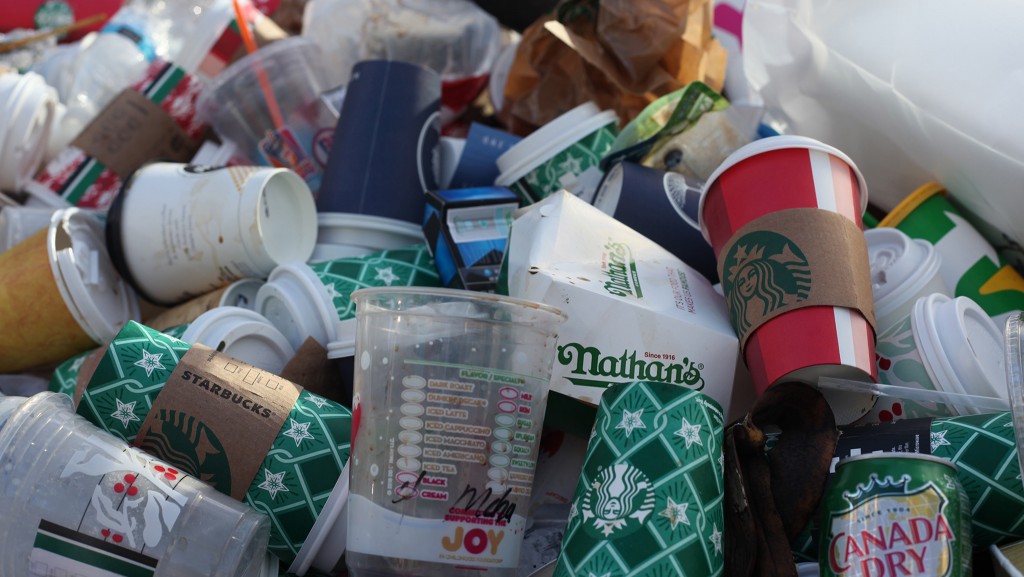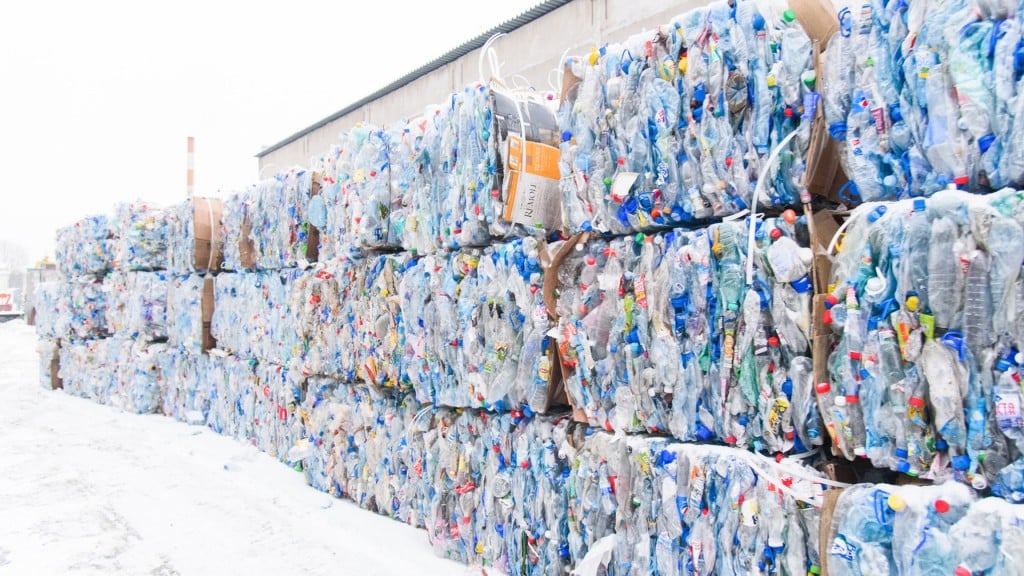New WWF report indicates progress on plastics from world’s largest consumer goods producers

A new report from World Wildlife Fund (WWF) finds that Principal Members in the organization's ReSource: Plastic program - Keurig Dr Pepper, McDonald's Corporation, Procter & Gamble, Starbucks, and The Coca-Cola Company - cut their use of problematic plastic by 57 percent between 2018 and 2020.
This significant reduction, which totaled 71,000 metric tons, included the elimination or material transformation of hard-to-recycle small items like straws, utensils, and materials like rigid foam and vinyl.
The decrease in problematic plastic is one of many metrics highlighting progress published in the second annual report from ReSource: Plastic. Launched in 2019, the program is an effort to quantify corporate impact and track company actions and opportunities to prevent millions of tons of plastic waste. The reporting series looks at how plastic footprints are changing year-over-year, tracking progress and prioritizing recommendations for action in three areas WWF finds critical for corporate engagement on plastic: eliminating unnecessary plastic, making the plastic they do need from sustainable inputs, and doubling their recycling rates.
"Businesses have been talking about the plastic pollution problem for some time, which is an important step, but it's now time to ask the tough questions: what have you done and is it really making a difference?" said Sheila Bonini, senior vice president of private sector engagement, WWF. "In this reporting series, ReSource Members are answering, by putting all their data - the good, the bad, and the ugly - on the table so we can see what actions are or are not working, and it is clear how they can maximize their ability to make impact."
Following the baseline plastic footprint analysis of these companies, which was published in 2020, this latest report finds promising progress in some areas, particularly around eliminating unnecessary plastic. Another notable development is in the advancement of reusability - an intervention that has the potential to curb the demand for single-use items. Several companies introduced or expanded reuse pilots, and/or participated in Consumers Beyond Waste to develop critical guidance for environmentally and socially responsible reuse systems.
Less encouraging was the progress toward incorporating recycled content into plastic that can't be eliminated, which underscores the continued investment necessary to build the recycled content supply chain - even when the demand is high - given systemic issues in waste management and recycling infrastructure. The use of recycled content among ReSource Members increased from 7.8% to 9.6% (+124,000 metric tons) between 2018 and 2020, a modest improvement which requires acceleration to meet their time-bound goals.
Addressing these issues presents the greatest opportunity for ReSource Members to make an impact at scale. The report points to promising developments over the past year: a new Polypropylene Recycling Coalition, of which some ReSource Members are members or co-founders, has already awarded 13 grants that will increase recycling access for polypropylene in the U.S. by 6 percent; and a $12.5M commitment from American Beverage Association, a ReSource implementing partner, to modernize PET recycling. This commitment is projected to make an additional 693M pounds of PET recycled content available over the next 10 years.
Primary recommendations for the year ahead include the continued elimination of unnecessary plastic through reduction, substitution, and business model innovations like reuse systems. To build on the momentum on reuse, the report encourages all eight ReSource Member companies to move from pilots to market scale. The report emphasizes that with further ambitious collective action, reuse systems have the potential to fundamentally change how we use and dispose of plastic.
The report also calls on companies to support collective action and investment in recycling systems, as well as policy interventions with multi-stakeholder representation like extended producer responsibility (EPR). Many ReSource Member companies are already involved in such efforts, which will be critical to unlocking access to recycled content inputs.
Finally, the report cites the continued need for improved and standardized data and recommends a global treaty on plastic pollution - which a number of ReSource member companies have already endorsed - as a fundamental building block for standardized measurement to inform policymakers, corporate decision makers, and the public.



